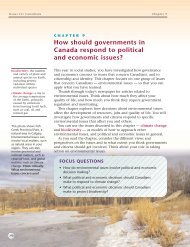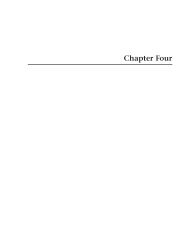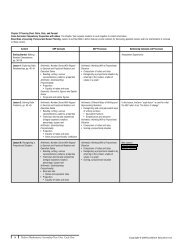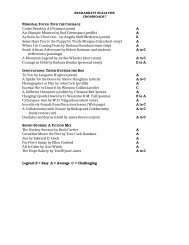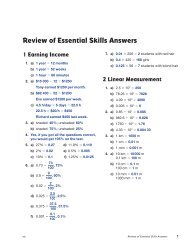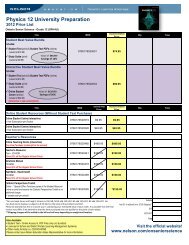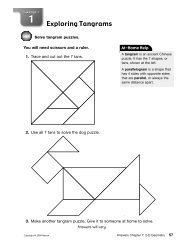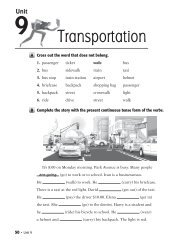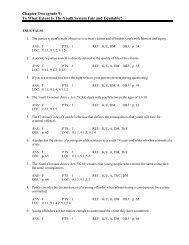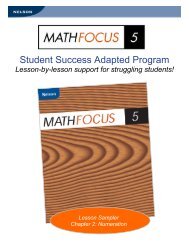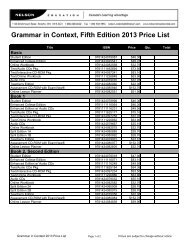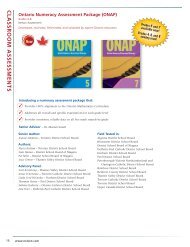PRE-PUBLICA TION EDITION - Nelson Education
PRE-PUBLICA TION EDITION - Nelson Education
PRE-PUBLICA TION EDITION - Nelson Education
You also want an ePaper? Increase the reach of your titles
YUMPU automatically turns print PDFs into web optimized ePapers that Google loves.
7.C. Good Study HabitsStudying takes many forms. Developing good studyskills can help you study and learn more successfully.Below are some tips to help you achieve better studyhabits.7.C.1. Your Study Space• Organize your work area. The place whereyou study should be tidy and organized. Placeall papers, books, magazines, and pictures inappropriate areas of your study area (e.g., keepbooks in a bookcase or crate and magazines ina stack on the floor). This will make it easier foryou to focus on your school work.• Maintain a quiet work area. Where possible,make sure that your work area is free fromdistractions—telephone, music, television, andother family members. If there are too manydistractions at home, you can usually find anappropriate space at the school or public library.Any quiet space, free from interruptions, can bea productive work area.• Make sure that you are comfortable in your workarea. If possible, personalize your work area.For example, make sure that the light is right foryour needs. Decide what works best for you andcreate a study area that provides a productiveand positive environment in which you feelcomfortable.• Be prepared—bring everything you need. It isimportant to have all the necessary materials andequipment that you will need when you begin tostudy. You can easily increase your productivityby gathering materials such as pens, pencils,notebooks, or textbooks in one place near yourcomputer or on your desk. Continually getting upto find something you need decreases your abilityto stay on task and be productive.7.C.2. Study Habits• Take notes. Take notes during class. Outsideclass, review the appropriate section of thetextbook. Read or view additional material onthe topic from other sources, such as newspapers,magazines, the Internet, and television. Ask afriend to share notes with you.• Use graphic organizers. You can use a varietyof graphic organizers to help you summarize aconcept or unit (page 642). They also help youmore easily connect different concepts.• Schedule your study time. Use a daily planner andtake it with you to class. Write any homeworkassignments, tests, or projects in it. Use it tocreate a daily “to do” list. This will help youcomplete work to hand in and avoid last-minutepanic. Also, jot down in your planner when,where, and with whom you plan to study forcertain topics.• Take study breaks. It is important to schedulebreaks into your study time. For example,you could decide to take a study break aftercompleting one or two items on your “to do” list.Taking breaks allows you to relax and to rechargeyour brain so that you can keep focused whenyou return to your assignments.640 Skills Handbook NEL



